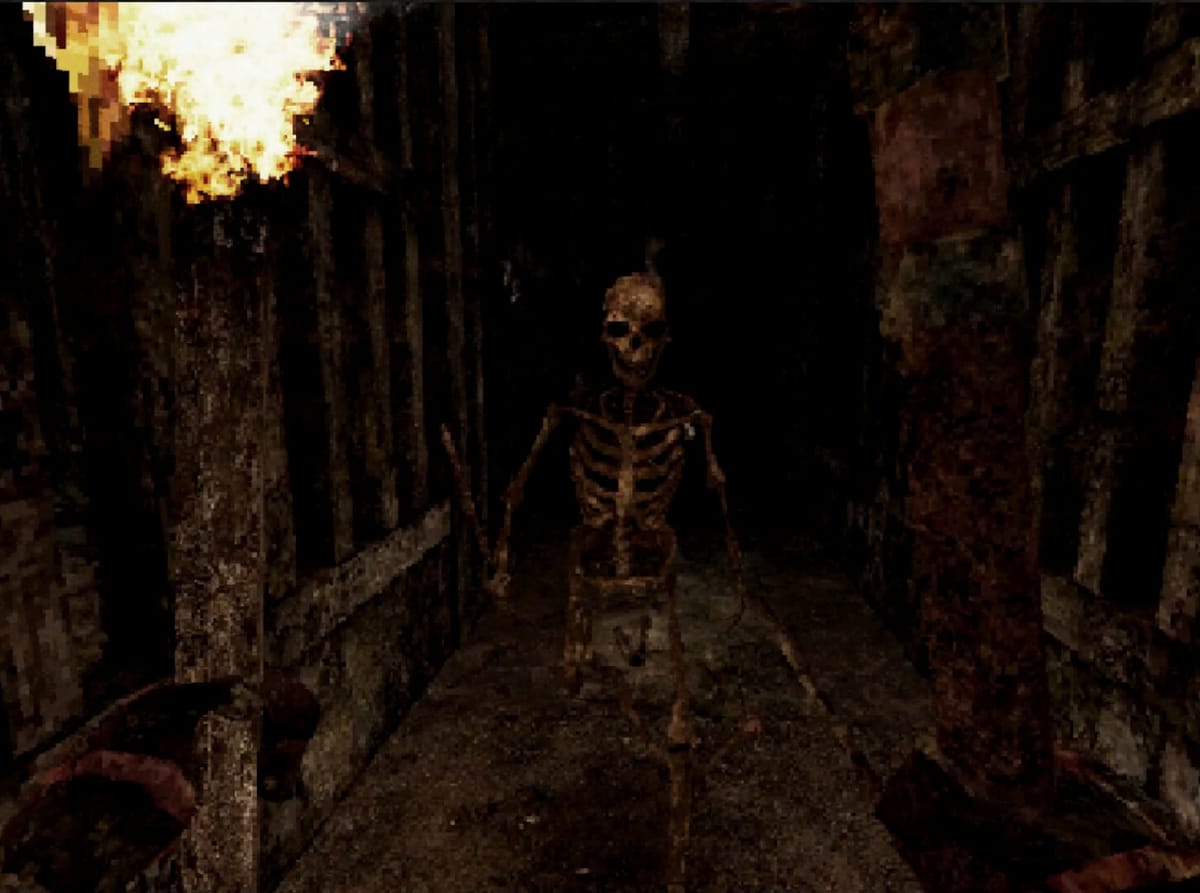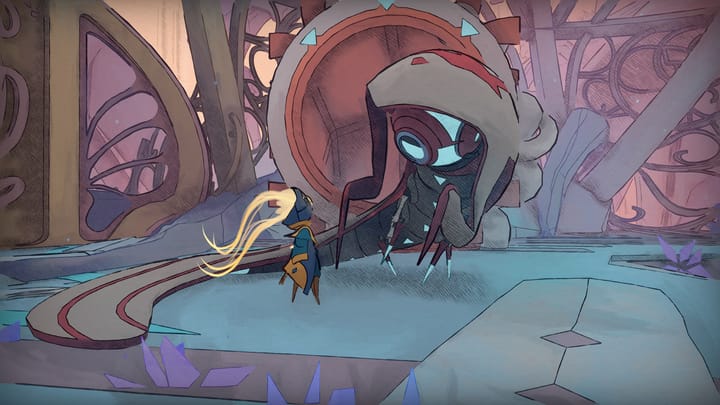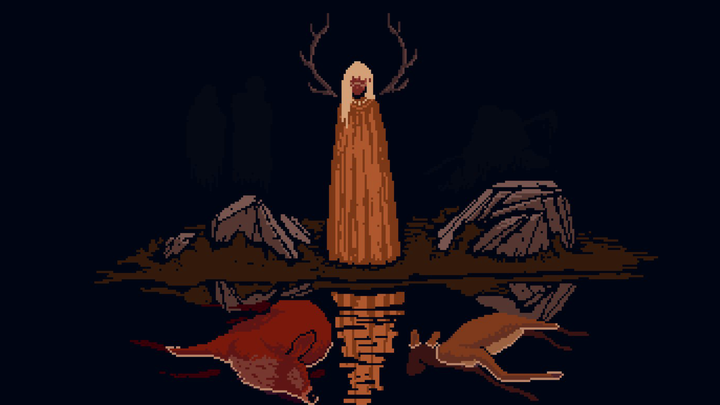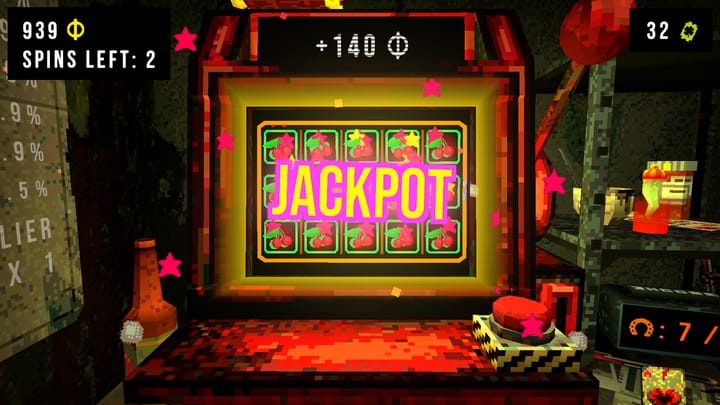Combining the restrictiveness of first-person dungeon-crawling, with the psychological dread of early 3D survival-horror greatest strides, solo developer J. R. Hudepohl pulls no punches with a game that is unforgiving, unrelenting but surprisingly gripping as a result.
In a similar way to that of the 8-bit era of games, though it may lose out in any and all battles of visual and technical proficiency, the first wave of fully-rendered three-dimensional gaming experiences are not entirely without their own feats and hallmarks of genuine achievement.
Put aside one's deeply-embed nostalgia or likely personal sentiment around these games for one moment and it's hard not to look at that period of time as one of near-universal grappling with the unknown. From the mid-nineties all the way up to the turn of the new millennium, developers weren't just grappling with more advanced technology, they were dealing with a completely new means to perceive and translate the very fictional worlds being orchestrated.
No longer was it a case of backdrops, backgrounds, collective arrangements of pixels and/or sprites on a screen. Now, the very physicality and conditional presence of space, distance and perspective had to be considered. And in some cases, grappled with as inevitably, the limitations on the hardware powering it, would be met. But against the odds, finding creative ends through such limitations would prevail.
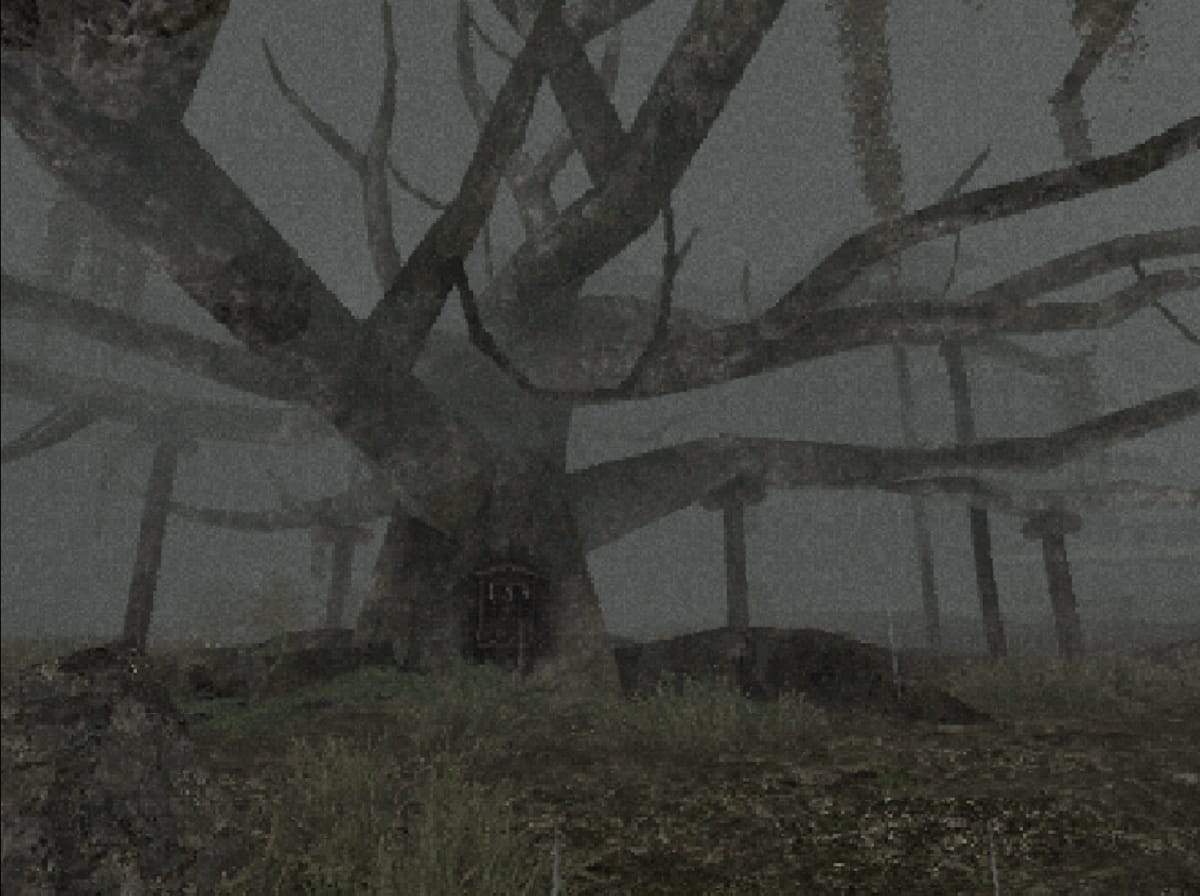
In many ways, Labyrinth of the Demon King feels like a somewhat different kind of throwback to this most recent wave of survival-horror/horror-tinged releases as of late. Games like Crow Country, Mouthwashing – all of whom taking cues from the experimental imperfections of that same early-3D era of design.
Labyrinth of the Demon King certainly isn't shy of preying on as much those same nostalgic beats. Its equal measure of King's Field-esque dungeon-crawling in one hand and the atmospheric infectiousness of both early Resident Evil/Silent Hill survival-horror, in the other. But of any game released as of late that feels like it's truly pushing the envelope (as much one's own tolerance threshold) when it comes to reviving this particularly archaic form of gameplay, Labyrinth of the Demon King undoubtedly wins out in spades.
To both its detriment and benefit alike. Detriment, because of just how unhinged the game is, even in its early parts. Pass the introductory combat tutorial – amounting to your standard go-to of light/heavy attack, block/parry/dodge and lastly a kick that converts to a stomp during particular contextual circumstances – and it's clear to see just how much of a push-back the game is employing.
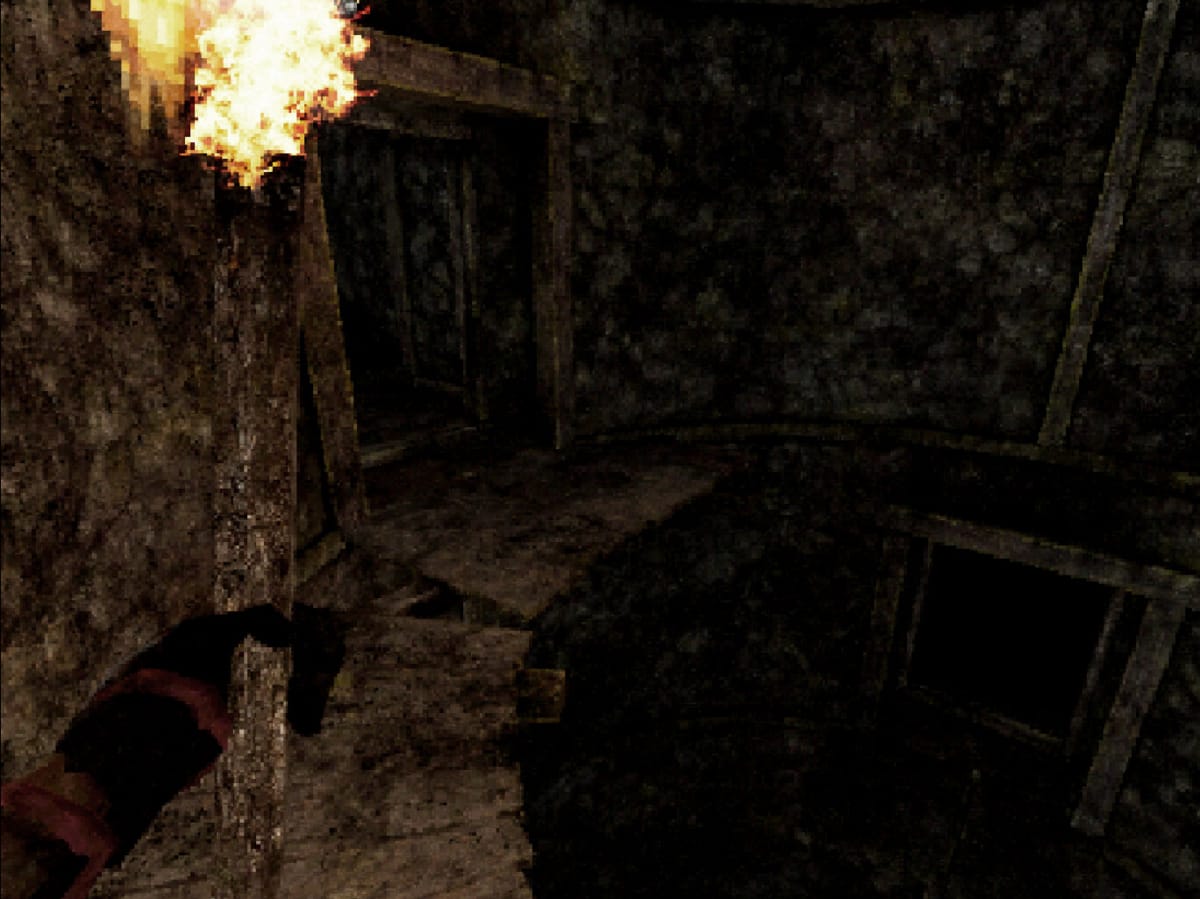
Enemy placement/behaviour, far-from-fluid controls (a deliberate aesthetical choice but worthy of highlighting nonetheless) and an all-round user interface that itself comes off unashamedly basic and even antagonistic to properly navigate through. Suffice it to say, it's an almighty reality check and a discomforting one at that. This is no power fantasy, despite the supernatural/demonic premise or indeed the presence of weapons to accrue and level-up progression somewhat at the heart of proceedings.
But grit one's teeth, battle past the early shock at dying ample times and eventually, Labyrinth of the Demon King's omnipresent grime, chunky visual grain and best of all, its sound design, will convince you this seemingly insurmountable ordeal, can be beaten. Even with a control scheme whose combat-centric mechanics can feel like the real demon to best here.
Yet even this implied struggle with interaction serves a purpose and Labyrinth of the Demon King rustles up just enough variety in enemy types, for the ordeal of mastering these restrictions, to come across as highly rewarding. Doubly so when it comes to inevitably facing a new type of hideous creature; a seemingly vague and unexplained solution on how to truly put them down, eventually revealing themselves. But revealed, again, through little more than this very same sum of basic, archaic controls.
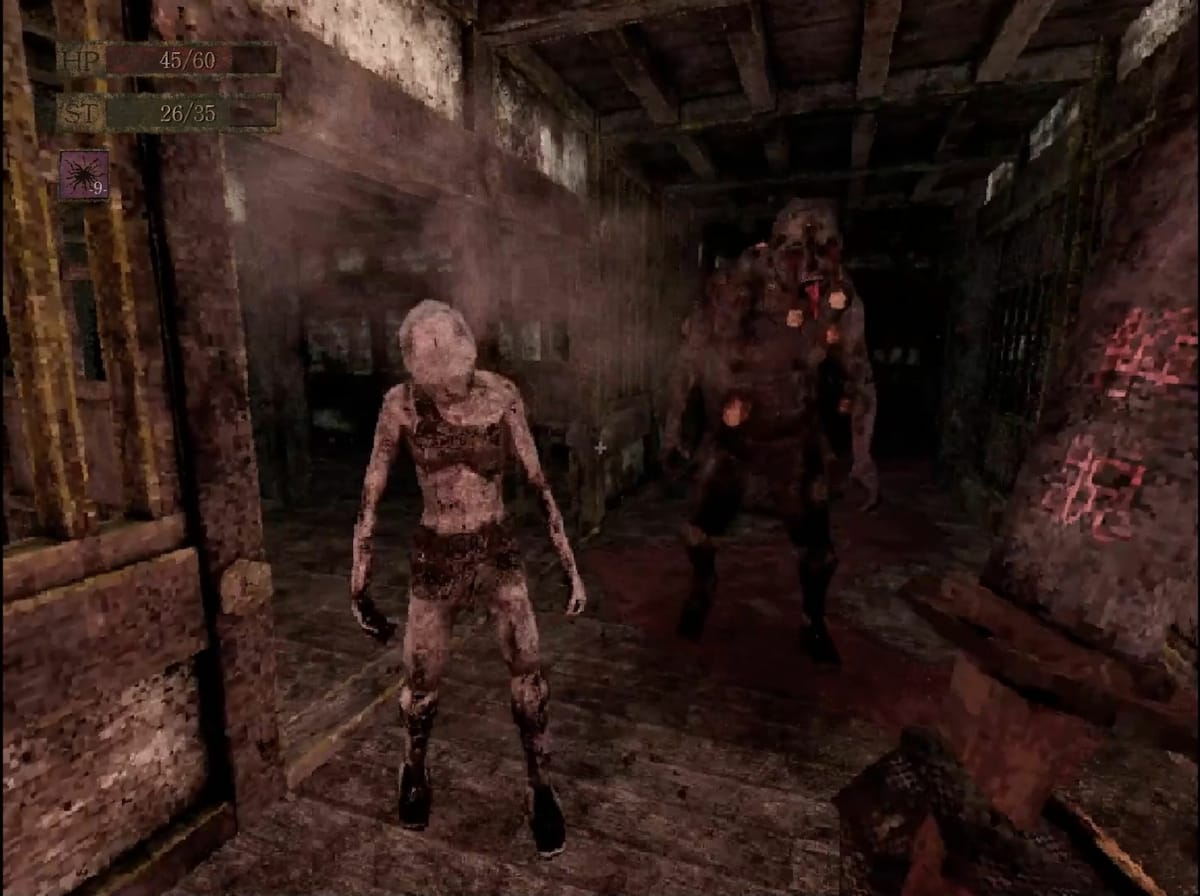
For it's when these intentional restrictions on design pave way to a moment of realization, that Labyrinth of the Demon King finally convinces you this is a creative vision built with purpose, as much a firmly-seated, unflinching fondness for what came before (flaws and all). And it's in the game's soundtrack – broader still, how sound itself is utilized – that this feeling of realization is not only unexpected, but effective for that very reason. Arguably Labyrinth's most impressive aspect.
How, for example, the dark ambient leanings of its score will sometimes bear resemblance to that of a snarling creature or pants of a certain prowling foe hunting you down. Inevitably, the paranoia of one's surroundings – bolstered by how limited in draw distance/visibility the game is rendered in – rears its ugly head. A frantic glance behind you one second, a hesitance to stop and collect every available item in a room the next. Footsteps of one's character added to by the possible footsteps of someone or something else. But perhaps not?
Again, there's little in the way of melody (as is often the case with survival horror soundtracks) or indeed divergence from the usual tropes this genre often dictates. But Labyrinth of the Demon King's crescendos in conjunction with the dungeons presented, make it very easy for anxiety and self-doubt to fester. The muffled abstraction of certain NPC dialogue – wordless gobbledegook, as if being filtered through similarly-aged tech – only adding an off-kilter vibe to an already uneasy atmosphere.
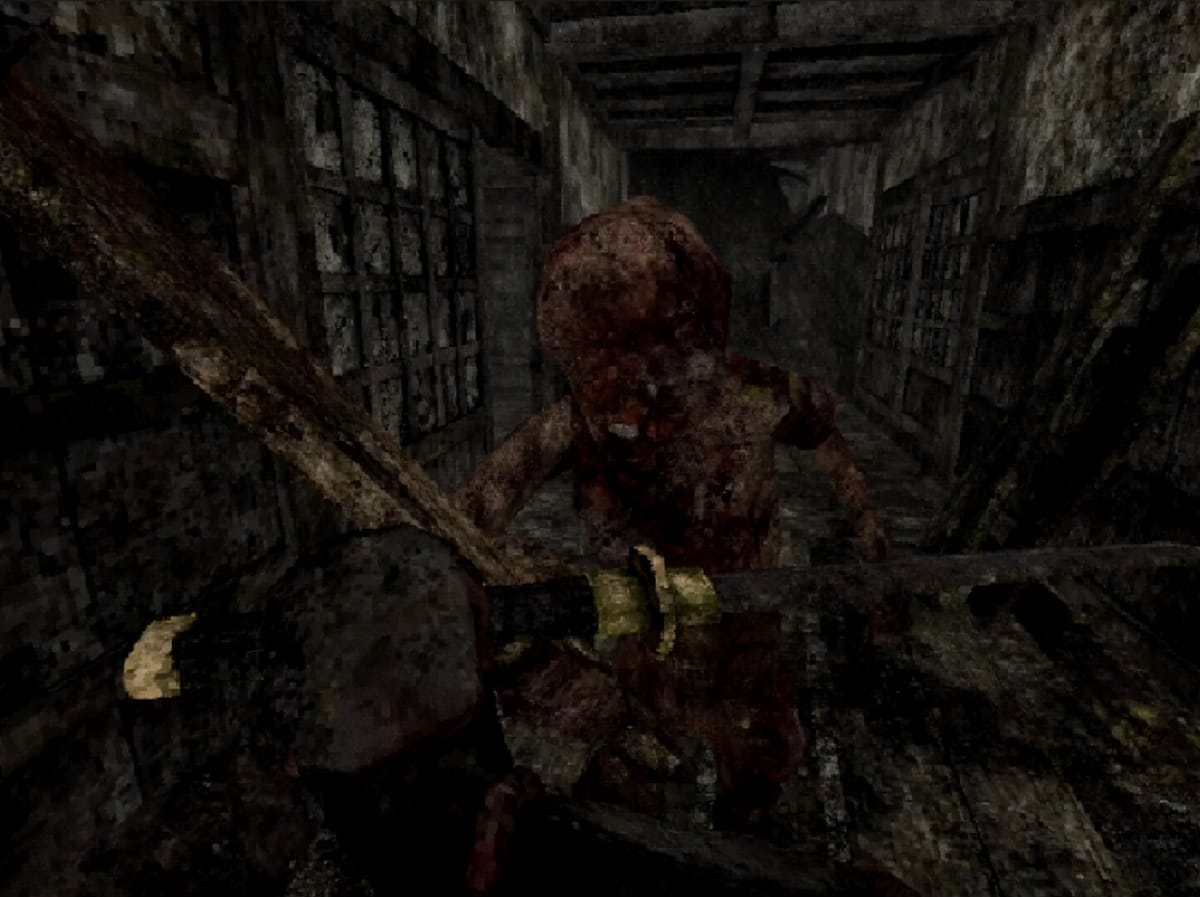
It's here that Labyrinth of the Demon King succeeds on its proposition of a survival-horror, dungeon-crawler that is uneasy to simply move about within and through, as it is to simply experience first-hand. As noted, the speed at which the game draws up these restrictions won't be for everyone. And even if they are, there's bound to be an opening hour of confused frustration that someone would be so bold at constructing a game this rigid and restrictive.
But whether it's avoiding death at the hands of a monstrous creature – doubly-so for the impending boss fights lying at the heart of each of the game's "dungeon" segments – or figuring out what it is one needs and where it is one is required so as to progress things accordingly. Struggle reaps salvation and that feeling of besting these demonic tribulations remains effective.
Elements like the puzzles employed may veer a little too familiarly into Resident Evil-like territory with its locked gates (opening only when a set number of gems are found/inserted), color-coded rooms and riddles that straddle the line between blatant and subtle-enough with their explanation. But even here, the challenges offered are varied enough and reasonably-positioned to help punctuate the clotted grime, rain, fog and ruinous locales that comprise the game's setting.
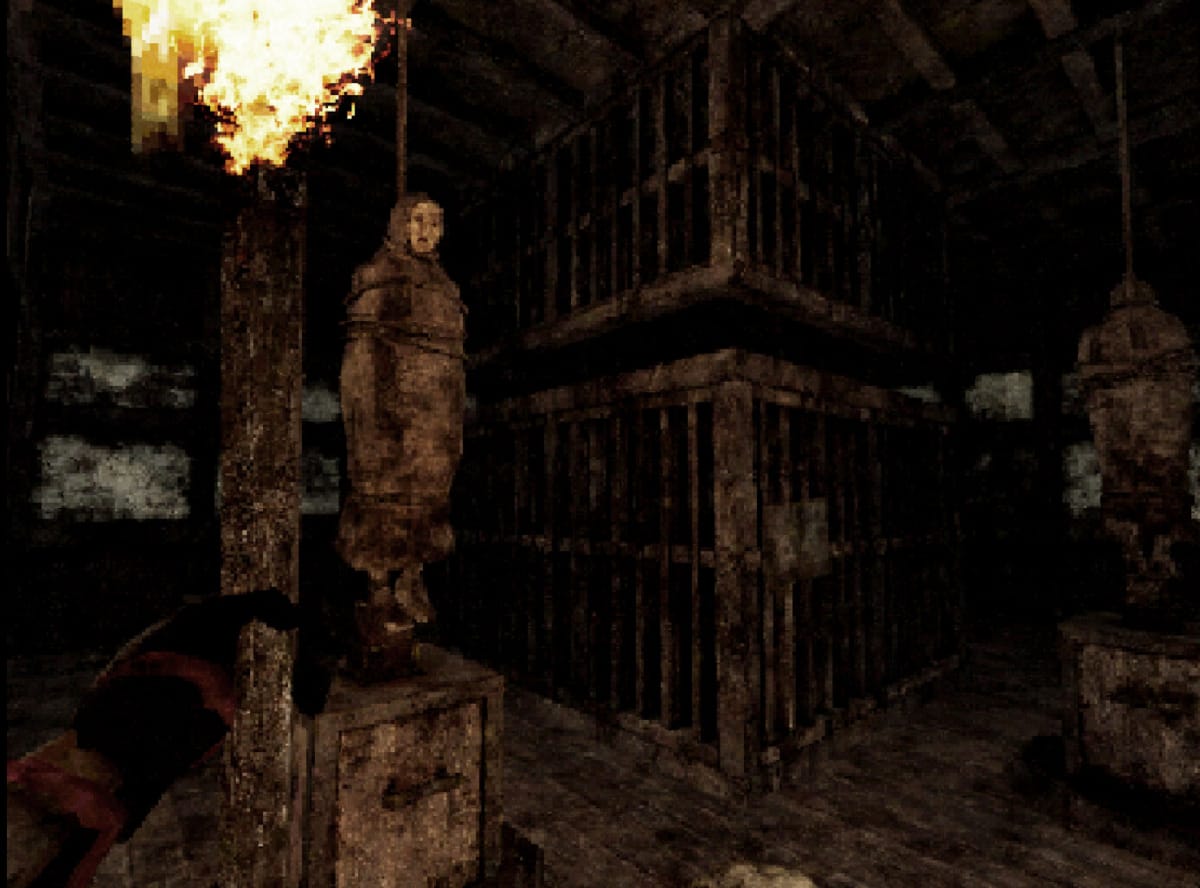
Developer J. R. Hudepohl has clearly gone about this with more shamelessness and intended restriction, than what your usual nostalgic throwback may likely provide. From its controls to its visuals, to even the most foundational of technical aspects like the game's very aspect ratio, Labyrinth of the Demon King is a game seemingly built to dissuade and deter.
To say the 4:3 framing is but the first oddity you'll learn to get over and even oddly appreciate, speaks volumes at just how well this game delivers on its promise of a first-person dungeon-crawler that is both reflective on its past, but wise too as to why such a genre worked as well as it did to begin with. Labyrinth of the Demon King is a peculiar thing, but peculiar in the sense of how easy it might be to despise what's on show, to then so quickly appreciate how it's delivered. Tag on some creative use of sound and that familiar string of "ah-ha" elation with the way dungeons are structured: peculiar, in this case, can simply be translated to mean shockingly impactful.



